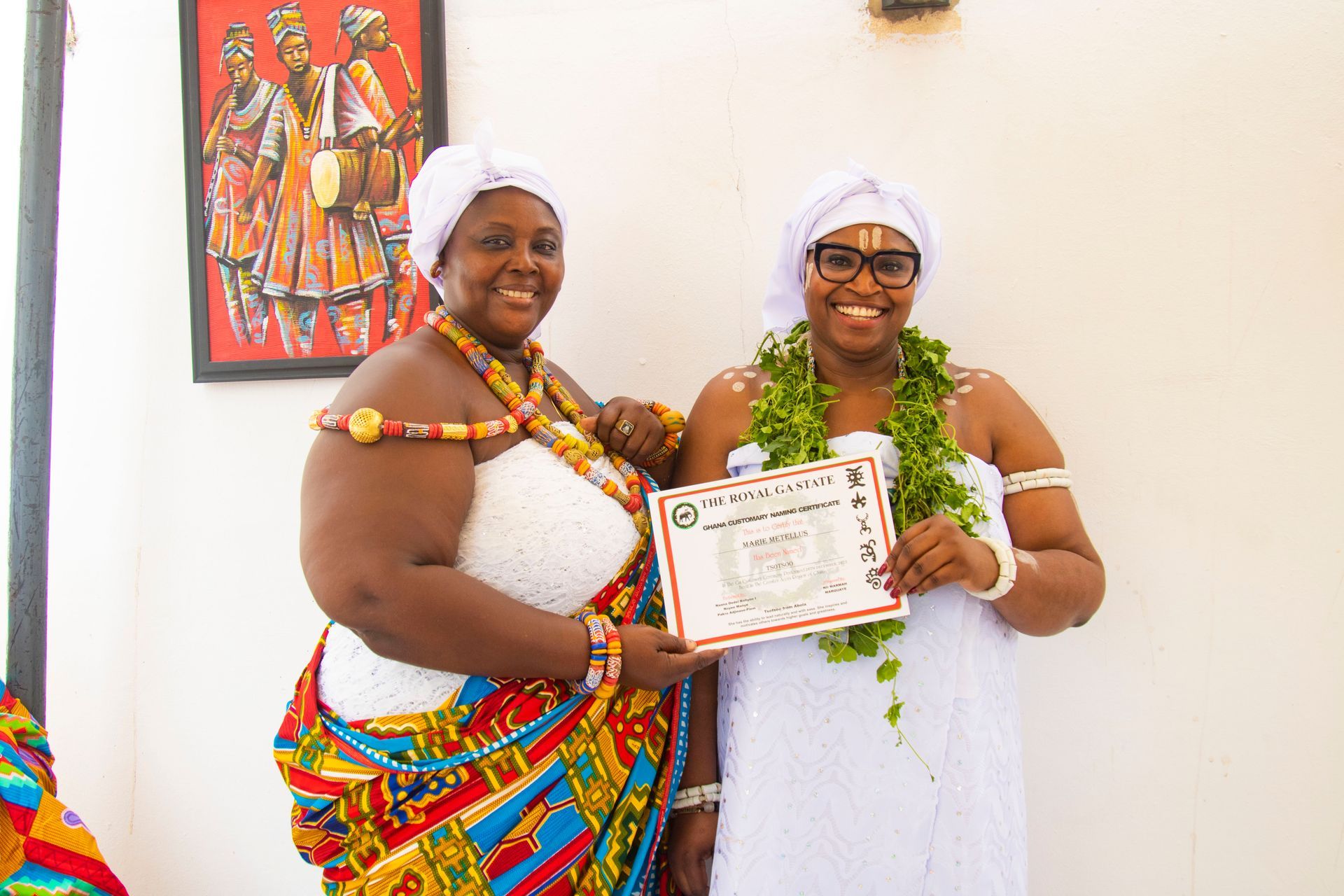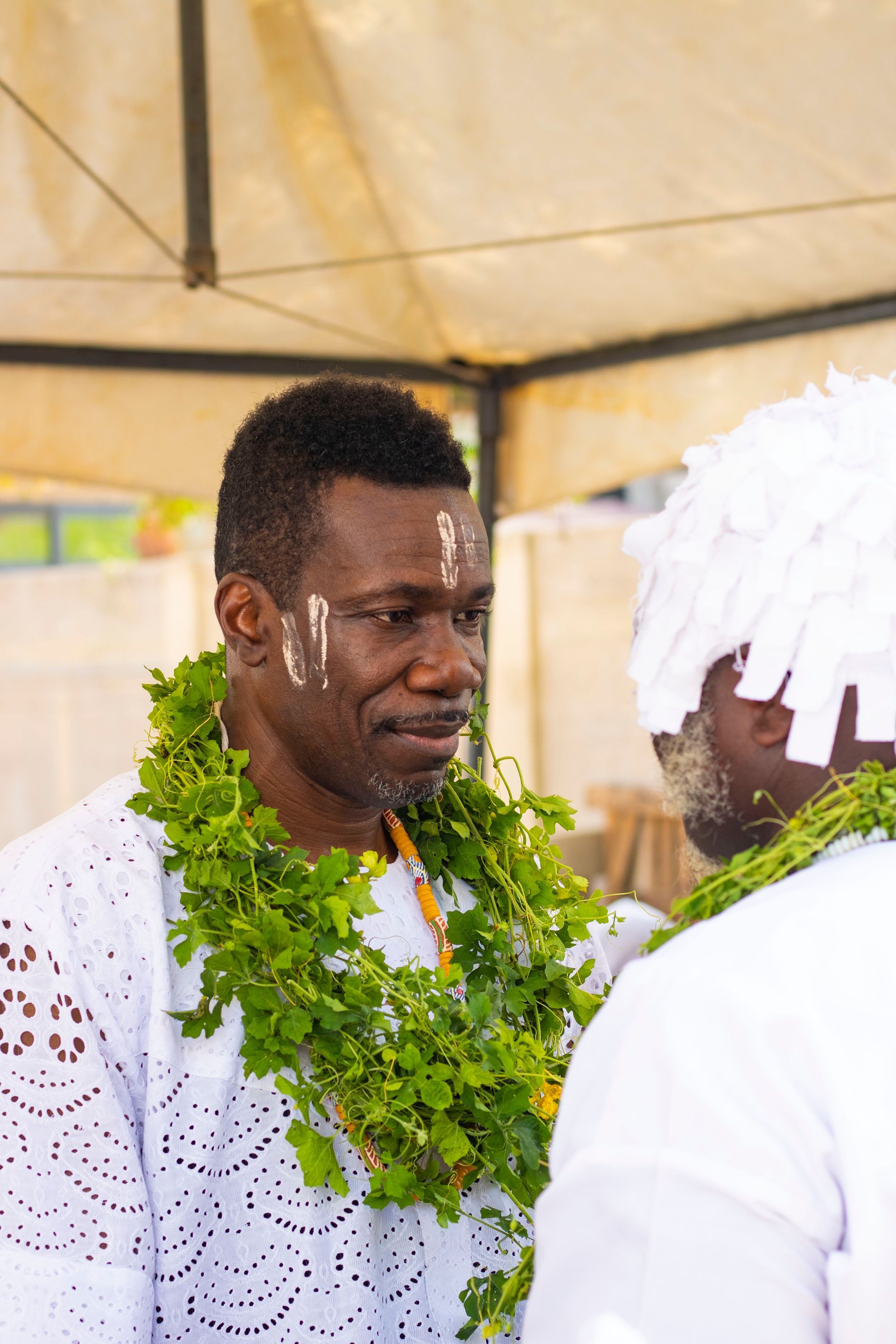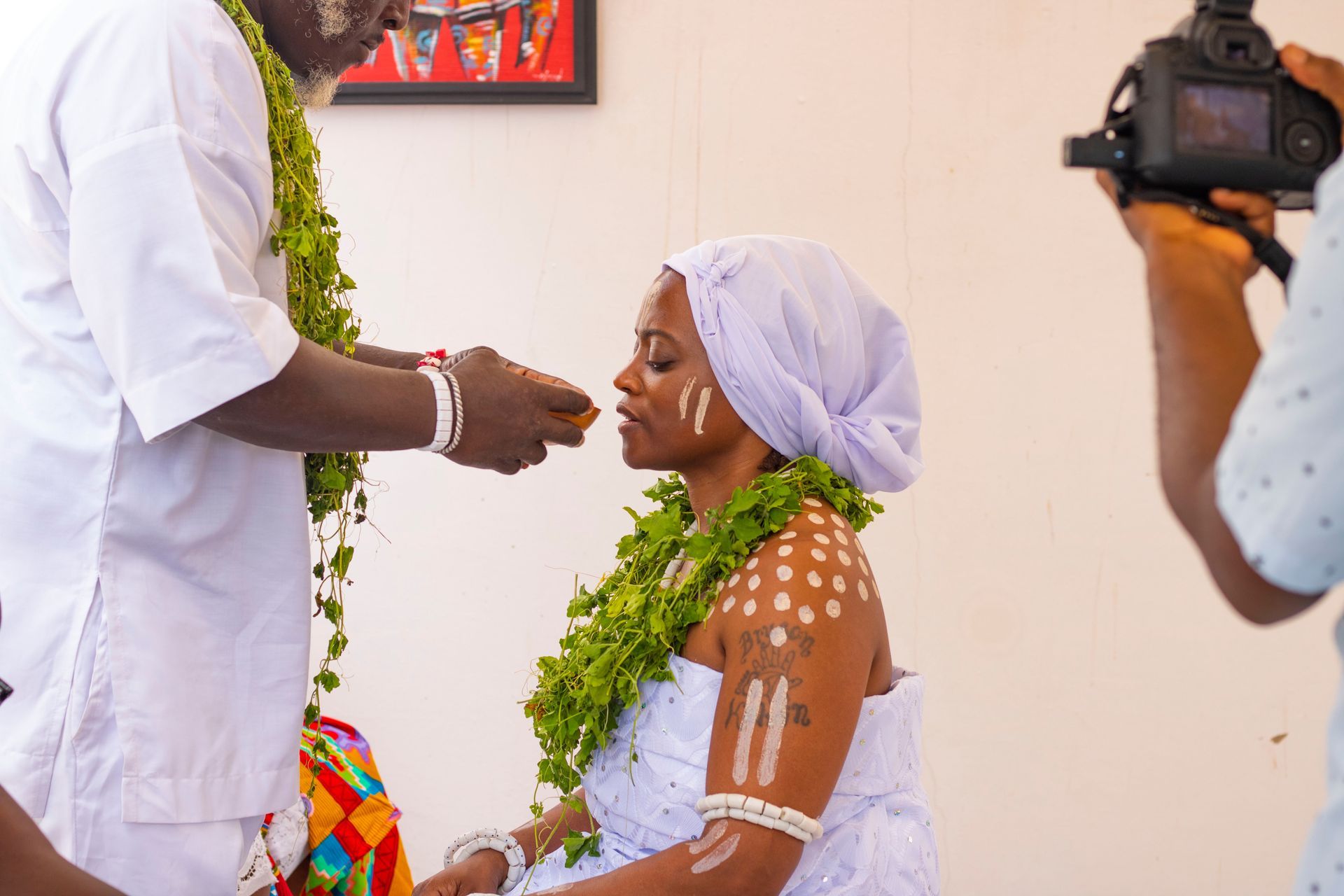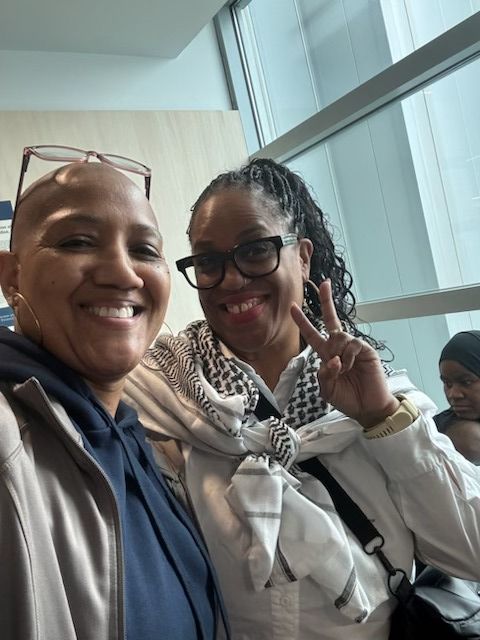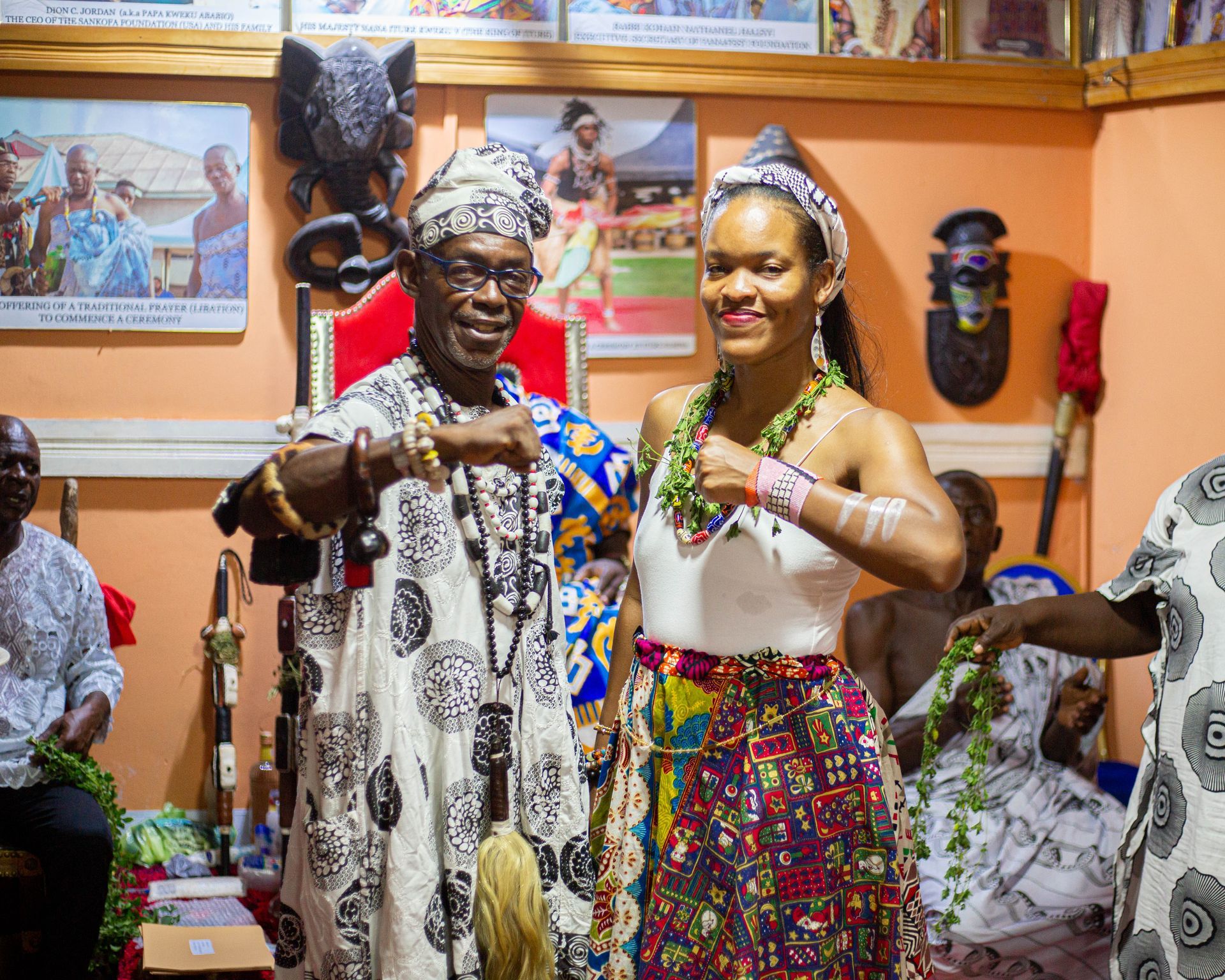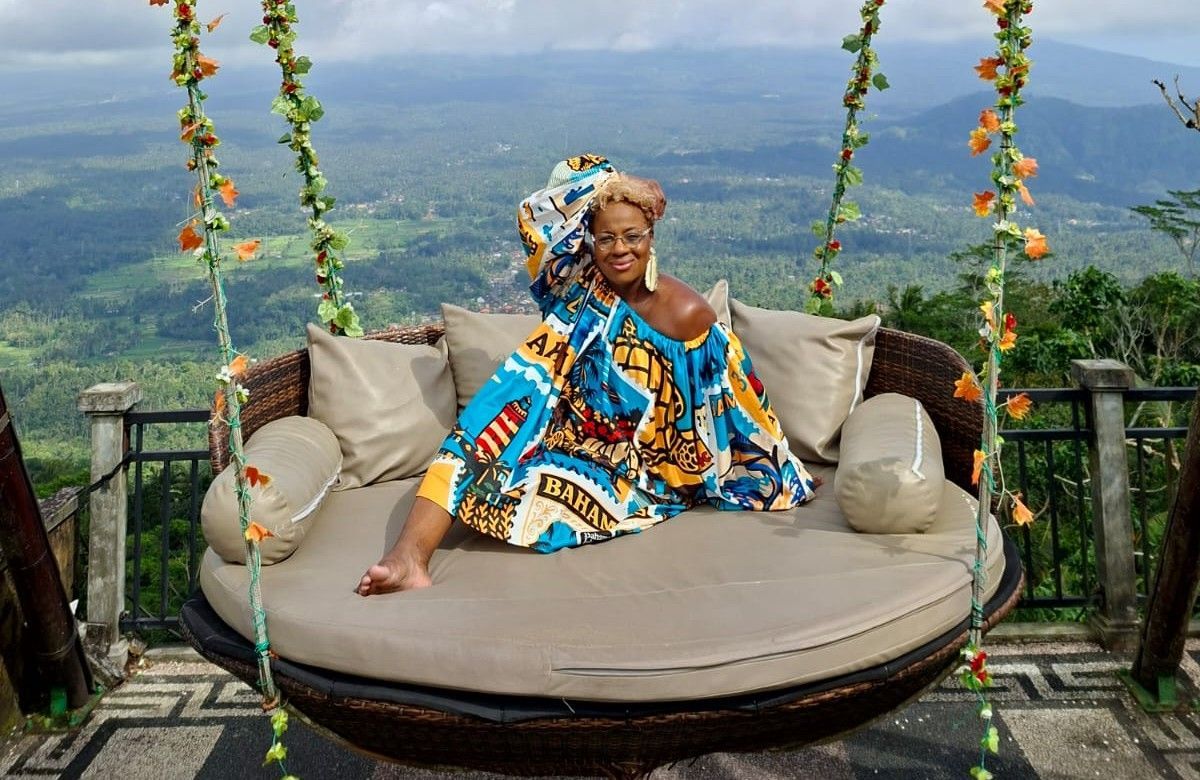Ga Naming Ceremony in Ghana: A Sacred New Year Homecoming
A Sacred Beginning: Our Ga Naming Ceremony in Accra, Ghana
On the morning of New Year’s Day in Accra, the world felt still — as if time itself had paused to witness our homecoming. Dressed in white attire symbolizing purity and new beginnings, our group of BTI travelers gathered beneath the open Ghanaian sun, surrounded by the warmth and welcome of the Ga people. The air was alive with rhythm — drums echoing across the courtyard, elders humming prayers, and the faint scent of wood smoke mingling with ocean air.
This wasn’t just a ceremony. It was a rebirth.
Honoring Ancestry on New Year’s Day in Ghana
The start of a new year already carries the promise of transformation, but in Ghana, it took on new meaning. As part of our
NYE in Ghana experience, we were welcomed by members of the
Ga community to take part in a traditional naming ceremony — an ancient rite of passage that connects the living to their lineage. Each of us arrived with hearts open, ready to reclaim a piece of ourselves that distance and time could never truly erase.
The Meaning of a Traditional Ga Naming Ceremony
Among the Ga people of Accra, naming ceremonies are sacred events marking a child’s formal introduction into the community. Traditionally held on the eighth day after birth, elders gather to pour libations, offer prayers, and speak blessings of destiny over the newborn. The ceremony is both spiritual and communal — it acknowledges identity as a divine gift, bestowed by both ancestors and living kin.
For us, returning from across the diaspora, the ceremony held profound weight. It was not about receiving new names alone — it was about remembrance. The elders explained that to be named in Ghana is to be recognized, claimed, and celebrated as part of something larger. It’s a way of saying, you belong here.
White Attire, Clay Markings, and the Power of Symbolism
Before our names were spoken, each woman was adorned with white clay markings on her face and arms — symbols of purity, protection, and spiritual clarity. The cool clay carried the wisdom of generations; each pattern, drawn by the elders’ hands, was a prayer made visible.
We stood together, clothed in white, surrounded by drummers, singers, and laughter that reached beyond language. When my Ga name was spoken, it felt like a vibration through time — a sacred recognition of who I’ve always been. Tears flowed freely. In that moment, we were seen not as visitors, but as daughters returning home.
A Homecoming for Black Women Travelers
The courtyard filled with dancing, joy, and sunlight. The red earth beneath our feet became holy ground. For each of us, this ceremony marked more than the start of a new year — it marked a spiritual awakening.
We came to Ghana to explore, but we left transformed. Through the Ga naming ceremony, we experienced what it means to travel not just across oceans, but through generations — to touch legacy, to feel seen, to remember.
Because in Accra, we didn’t just celebrate the New Year.
We came home.



